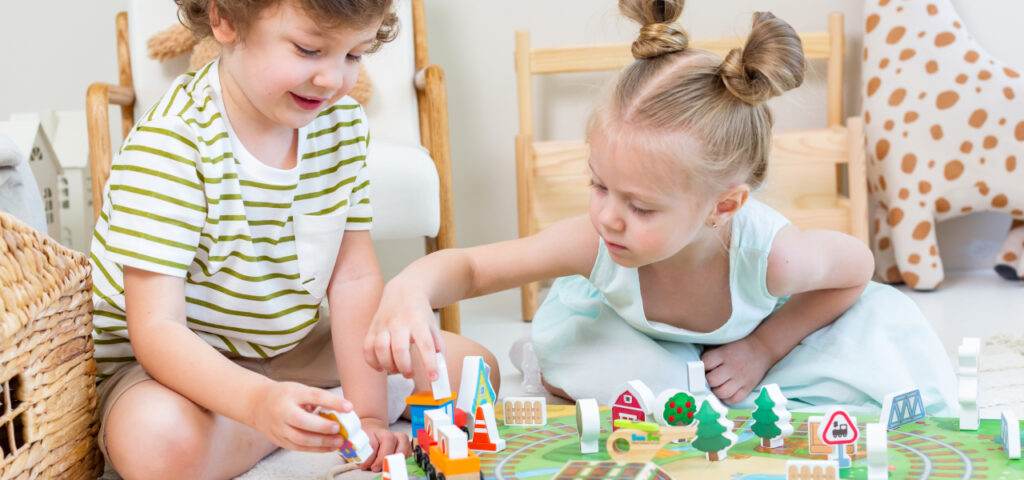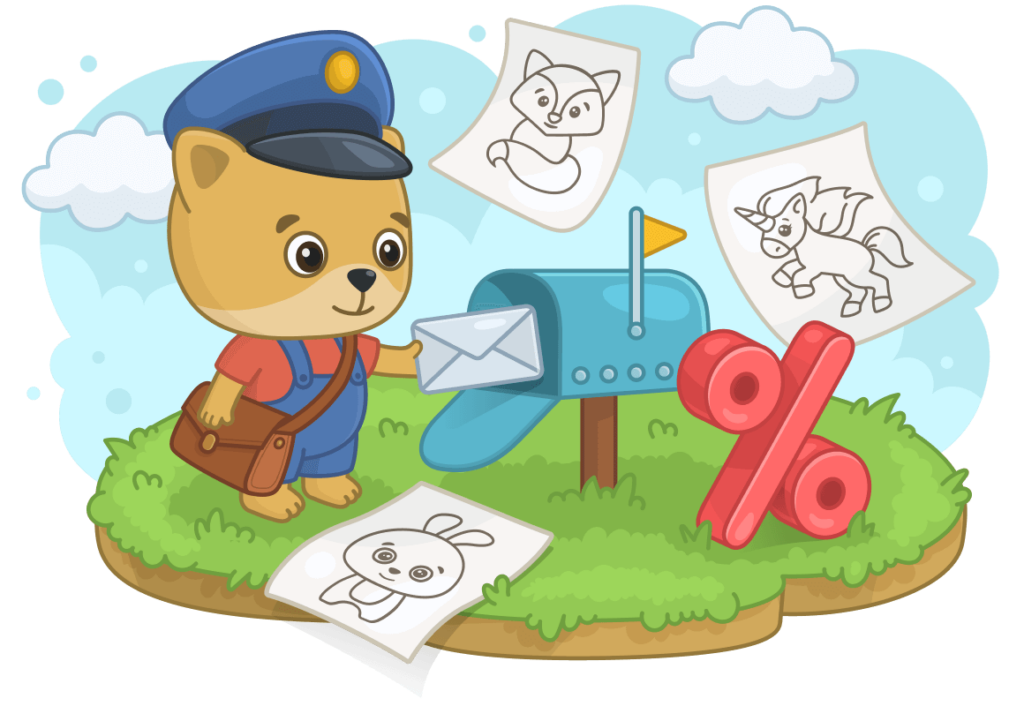In the remarkable journey of parenting, one of the most captivating aspects is witnessing the incredible growth and development of a child’s brain. From the moment of birth, the brain embarks on a complex and awe-inspiring path of formation and expansion. At BimiBoo, we understand the profound impact that early childhood brain development has on a child’s future. That’s why we are committed to providing parents with the knowledge and resources they need to stimulate and nurture their child’s growing mind. In this article, we explore the stages of child brain development and uncover the key elements that ignite the spark of cognitive growth, with insights from the experts.
Newborn Brain Development:
Even before birth, the brain of a baby undergoes rapid development. Once born, this remarkable organ continues to evolve at an astonishing rate. Simple yet meaningful interactions, such as cuddling, gentle caresses, and loving words, create a nurturing environment that fosters emotional bonding and lays the foundation for healthy brain development. Visual and auditory stimulation, including exposure to age-appropriate music and visual stimuli, further enhance the newborn’s sensory experiences and promote neural connections.
Infant Brain Development (0-12 months):
The first year of a child’s life is a period of incredible growth and exploration. As infants start to discover the world around them, it is crucial to provide an enriching environment that fuels their brain development. Engaging in interactive play, offering toys that encourage sensory exploration, and responding attentively to their babbling and gestures all contribute to cognitive growth. Simple activities like peek-a-boo, stacking blocks, and playing with different textures stimulate their senses and fine motor skills.
Toddler Brain Development (1-3 years):
Toddlers are like little scientists, constantly absorbing knowledge from their surroundings. This stage is characterized by a surge in language development, imaginative play, and fine motor skills. Engaging in conversations, reading books, and introducing new vocabulary supports their language acquisition. Encouraging imaginative play, providing open-ended toys, and engaging in art activities foster creativity and problem-solving abilities. Gross motor activities such as climbing, running, and dancing promote physical coordination and overall brain development.
Preschooler Brain Development (3-6 years):
The preschool years mark a period of rapid cognitive growth and social-emotional development. As children refine their language skills and expand their knowledge, it is essential to nurture their curiosity and thirst for learning. Engaging in activities that promote early literacy, numeracy, and scientific exploration lays a solid foundation for academic success. Encouraging social interactions, cooperative play, and emotional expression helps develop essential social skills and emotional intelligence.
Unveiling Child Brain Development Stages:
Understanding the stages of child brain development helps parents support their child’s growth effectively. Let’s explore the key phases:
- Sensorimotor Stage (0-2 years): During this stage, children explore the world through their senses and physical interactions. Encouraging safe exploration, providing age-appropriate toys, and engaging in interactive experiences support their cognitive and motor development.
- Preoperational Stage (2-6 years): In this phase, children’s language skills expand, and they begin to think symbolically. Engaging in pretend play, storytelling, and imaginative activities nurtures their creativity and cognitive abilities.
- Concrete Operational Stage (6 years and beyond): As children enter this stage, their thinking becomes more logical and concrete. Encouraging problem-solving, critical thinking, and engaging in hands-on experiences further enhances their cognitive skills and prepares them for more complex learning.
Conclusion:
Childhood is a period of immense growth and exploration, particularly in terms of brain development. By understanding the stages and providing a nurturing environment, parents can unlock their child’s potential and lay a solid foundation for future success. Embracing interactive play, fostering language development, and providing age-appropriate stimuli are key elements that ignite the spark of cognitive growth. Embrace the wonder of your child’s brain development and watch as they thrive and reach their full potential.



